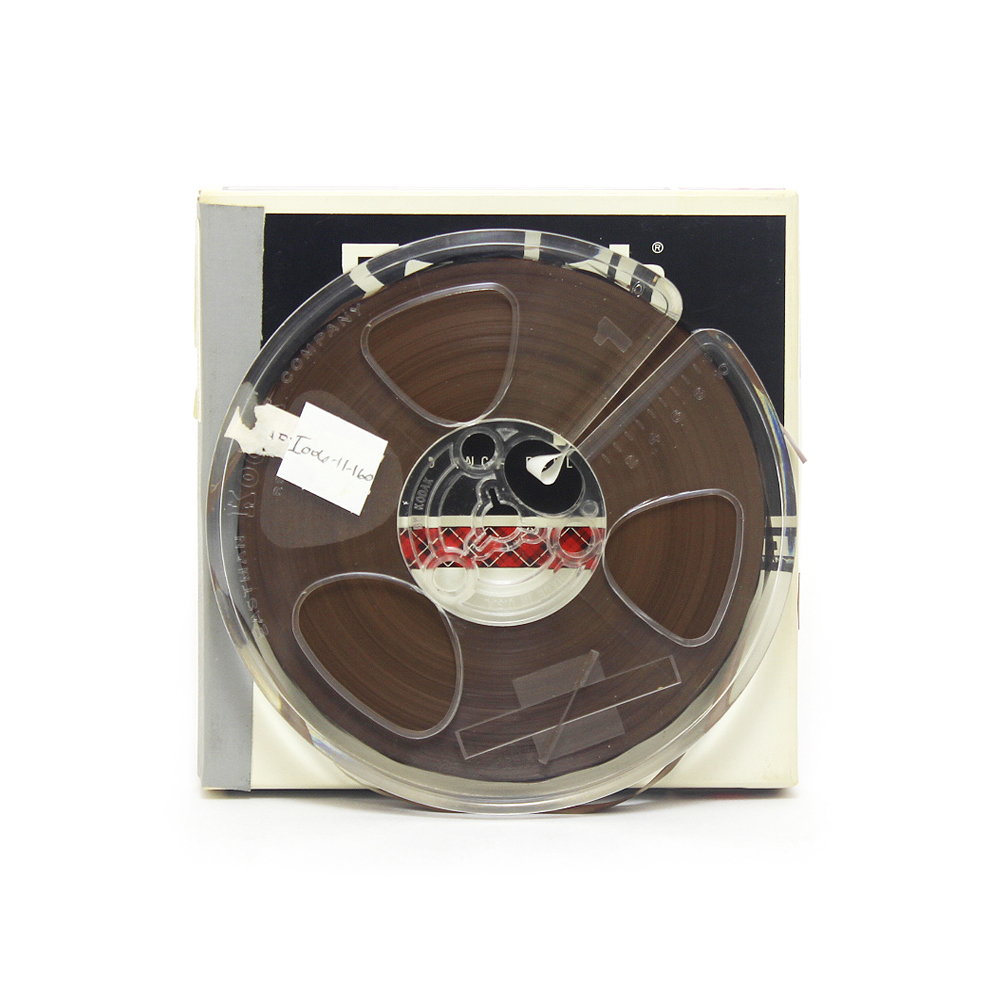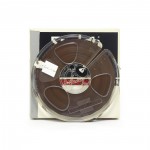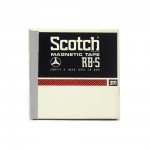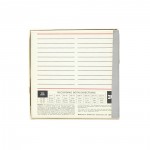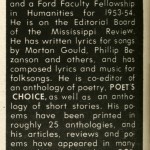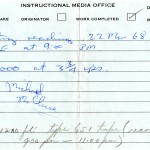Introducer
00:00:00.00
Ladies and gentlemen, Michael McClure, George Montana. [Applause.]
Michael McClure
00:00:29.26
That was [inaudible.] Star is a four letter word, s-t-a-r. Now, in case I read, I- is this on right? In case I read something here tonight with a four letter word in it, which I'm liable to cause I might start off be reading part of "The Beards", um, [inaudible] if anyone would be offended, it would be a good thing if they got their money back, right now. Is it all right if I do so? [Applause.] "The Beard" is a poem of mine in the form of a play that's just been arrested fifteen nights in a row by Los Angeles police and a state law has been passed against it being performed in the state colleges in California, among its other trials and tribulations. And right now we're waiting for a panel of three federal judges to come and see it and decide if it has redeeming social significance. [Laughter.] And if they don't think it is, we'll take it to the Supreme Court and see what they think. And, the play has two characters in it, Billy the Kid and Jean Harlow. And they're together in a blue velvet eternity, they both are wearing little beards made out of torn white tissue paper. They're-they only thing on the set with them is a table and two chairs covered with furs and Harlow is wearing a blue gown and she has a purse with her and a mirror and the Kid is dressed in a costume appropriate to his costume-I mean appropriate to his career. And when the curtain opens, there's an orange light shining on him which goes up after the first, about the first thirty seconds. And being that this is a poem in the form of a play, I can only read it, I can't read it properly, I can't be two people, I can't be Billy the Kid and Jean Harlow I can only be the author so I'll have to read it that way where it's actually meant to be a poem and acted by me on a stage, on a shelf with lights. We have a shelf with lights, but that's the best I can do.
Annotation
00:03:41.93
Reads "The Beards". [applause]
Michael McClure
00:11:02.81
Um, I'm going to read two more tonight. I want to read for a while and then have an intermission and then I'd like to come back on and play some musical pieces that my music guru George Montana has been working on with me and we've been writing some songs together, but I'd like to read poems for maybe half an hour or so first. I want to read some poems called "Mad Sonnets" and I imagine a lot of you know what sons are, what known as sons are, fourteen lines with a legitimate rhyme scheme, and these are not quite exactly like that. [silence] Does this microphone sound right? If I stand right here is that okay so that I don't have to lean into it?
Annotation
00:12:25.29
Reads poem "Mad Sonnet 1" first line "The plumes of love are black..."
Michael McClure
00:14:08.57
Another "Mad Sonnet" kind of ecological.
Annotation
00:14:23.53
Reads "Mad Sonnet 3" first line "Tiny mamals walk on white between the yellow..."
Michael McClure
00:16:03.63
Here's a-I live in San Francisco, but here's a "Mad Sonnet" that I started in New York, I went to Wall Street on a Saturday morning, I guess you can imagine what it's like during the week days, it's a narrow street, buildings stretching up like cliffs on each side of them and on Saturday morning it's cold and empty and you can feel the crush and vibrations from the previous part of the week.
Annotation
00:16:32.37
Reads "Mad Sonnet 13" first line "On cold Saturday I walked in the empty valley of Wall Street..."
Michael McClure
00:17:58.72
I never thought of those signs-they told me I can't smoke up here. It's my life I'll do what I want, [inaudible.] [Laughter.] The work-I think-are we all, I think I'm waiting for, this technology with which we live in, which is wonderful enough in it's own way, is also costly and [inaudible], eating up the planet, and I think I'm waiting for an all-chemical science, by means in which we can manifest ourselves through the universe and I guess we'll have to tinker toys like rocket ships and space ships to begin it, but I don't think that's how we'll really do it. And it's become kind of tradition to write songs to science, so I guess I had to do one too.
Annotation
00:19:20.45
Reads "To Science" or “Mad Sonnet 5”.
Michael McClure
00:20:48.86
I've got a book of poems in a language I call Beast Language, they're about half in English and half in this invented language. The book is called Ghost Tantras, ghost like the German word "gist", g-i-s-t, which means spirit, and I just said "ghost". Why can't ghost be a spirit, why can't we use that in English? And tantra, t-a-n-t-r-a, which is a Hindu form of poetry, it's poetry written in an invented language for magical purposes to bring about changes in the universe. I felt these poems, I felt these poems coming on, and I felt like I had a ball of silence within myself, within my body and I heard these sounds within that ball of silence, and I wrote them down phonetically, sort of like Marvel comics, you know where it says "keee-rash", k-e-e-e-r-a-s-h. And I see later that things like this have been done in gnostic Bizantine chants too, which also, is like Marvel comics. "Ka-pow". And some of them were written in San Francisco, some of them were written in airplanes, on the way to Mexico. I was going to Mexico to bring back cultures of psilocybin mexicana, the sacred psilocybin mushroom which were grown by scientists in Brooklyn. And, then upon my return I finished from there. I finished these "Mad Sonnets", there are 99 of them and I don't think you've probably heard anything like them before, and I guess all you can do is just relax. I like to start with one that starts with English because it's not so strange, they're about a third English or half English maybe.
Annotation
00:23:15.08
Begins with line in Beast language.
Michael McClure
00:23:19.60
No, that's not it. [silence] Where'd George go? George? [laughter]
Annotation
00:24:00.29
Reads “Ghost Tantra #51”.
Michael McClure
00:25:42.29
Here's another one that starts in English, it starts in Spanish. Just went to Spanish, [inaudible] George is.
Annotation
00:25:57.69
Reads first line "The motion of cool air shudders my shoulders..."
Michael McClure
00:27:45.63
I just had a lot of microphone trouble in Buffalo too. I don't know what. It's alright?
Annotation
00:27:55.96
Reads "Oooor greeeooosssh strato, butterfly, beaks and pants..."
Michael McClure
00:29:45.20
Here's one, this was written the day after Marilyn Monroe died, August 6, 1962.
Annotation
00:30:11.96
Reads "Ghost Tantra #39"
Michael McClure
00:31:37.76
You've got tourists talking in the background [?.] Is everybody relaxed? Cause I'm not. Eddie, in a print shop, was dismissed recently and I guess this poem had something to do with it. And, the poem is the ending of, it's the sexual ending of a very long poem called "Dark Brown" I see nothing wrong in taking any sexual part of the poem from any other part of the poem, and the sexual writing today will be viewed in fifty years or a hundred years much the way we view nature poetry today in the 19th century, because some [inaudible] classes we kept bringing up the fact that for our nature today if you were to look at the atmosphere or the air we breathe, the primary part of our environment is either other human bodies or concrete and we choose the human bodies rather than the concrete which seems to be a pretty fair choice. And I think that given the changes that are going on today, I don't think we'll be able to say anything. If we can say anything now. If we can say anything anytime. But I mean, I think that this will be looked upon in the same way that we look at nature poetry. Shelley and Keats were called the Cockney School in their day, which of course was balderdash all to Shelley, since he was a baronet and probably stunned Keats a lot worse since he was a cockney. [laughter.] They were exalted for their new nature poetries, in a sense, too. I'd like to read some like, preliminary stanzas of that poem, and then read part of the longer section which seems to have to do with the [inaudible.] In Eddie's defense I'll say that the London Times literary supplement found that this-- I'm not talking about my poems, I'm talking about Eddie. The London Times literary supplement found it a very fine poem and so did a number of other pretty legitimate sources. The poem is written in independent stanzas. I like to think of the stanzas as being independent in the way an organism is, and the totality of the poem being a totality the way an- the way a primitive--and this is a primitive poem-- is comprised of sub-individuals to make up its gestalt and being. The poem is called "Dark Brown" and I've just opened it to the page I wanted to. The stanza I wanted to.
Annotation
00:35:21.90
Reads "Dark Brown".
Annotation
00:37:48.43
Reads "The black, black, black damned and un-dreamy..."
Michael McClure
00:40:00.10
Another poem. Okay, have I justified enough? Now's your chance to go home. I'm going to read the tough part.
Annotation
00:40:23.40
Reads "The Huge Figures fucking..."
Annotation
00:50:00.57
[Applause.]
Michael McClure
00:50:15.21
I'll take a break. George and I are going to play, George Montana and I, and I won't guarantee you anything about it as my fingers are feeling very clumsy tonight. I'll be playing an instrument but I know George will play for us, so if you hear any faults in the playing, it's me not George. I want to take like, at least, I want to take a ten minute break and any body who'd like to stay is welcome to stay, and if you'd like to go, go, and if you want to leave during the music, if you don't like the music, for god's sake go. Okay? Thank you. [Audience breaks.]
Michael McClure
00:51:12.07
[Whispers] I'm kind of nervous, us going through it again.
George Montana
00:51:19.06
[Inaudible]
Michael McClure
00:51:23.42
Sure, let's see if it picks up.
George Montana
00:51:24.07
I think it's picking up
Michael McClure
00:51:24.16
Yeah?
George Montana
00:51:26.24
Yeah.
Michael McClure
00:51:27.72
Can you hear us whispering?
Unknown
00:51:28.37
[Whispers] Yes.
Annotation
00:51:30.89
Musical instrument strum.
Michael McClure
00:51:41.53
Let's see what it sounds like.
Michael McClure
00:51:43.03
[Piano, autoharp] Is it picking up? Can you hear in the back? Can you hear in the back row? Yeah, I think I lost that pic already. Christ.
Annotation
00:52:17.64
Music begins. [Song #1.]
Annotation
01:01:41.64
Audience applause.
Michael McClure
01:01:56.35
Um, I don't think I can sing. Do you want to do that one?
George Montana
01:02:00.54
Ah, okay.
Michael McClure
01:02:04.31
Shall we tell them it's a new song? Why don't you tell them?
George Montana
01:02:07.82
This is a song that Michael and I just have done, so I don't know the words by heart yet. So here it is.
Michael McClure
01:02:19.90
And I haven't learned the melody very well yet. Let's get co-ordinated together. You set the [inaudible.] You wanna sing it through three times? [Inaudible discussion between Michael and George.]
Michael McClure
01:02:57.17
Is this picking up alright? Can you hear it clear, loud enough? No? [Laughter] Get out. [Laughter]
Annotation
01:03:24.93
Song #2 begins. George Montana sings.
Annotation
01:10:50.46
Audience applause.
Annotation
01:10:59.71
Michael and George discuss the next song with each other, inaudible to mic. Adjustments made to mic.
Michael McClure
01:11:39.80
These are called technical difficulties. By the way we can smoke on the stage now because the lights are off in the auditorium. That's the fire alarm. [Laughter.]
Michael McClure
01:12:09.96
Want to play the “Bells of Moscow”?
George Montana
01:12:22.60
How about the other...[inaudible discussion.]
Michael McClure
01:12:31.66
I don't think I'm up to...
George Montana
01:12:40.60
We're going to try to do the Allen Ginsberg "For President Walt".
Michael McClure
01:12:43.60
I think I'm too scared to. We'll try it. I might be too-can you hear alright? I might be too scared. This isn't very complicated, isn't it a two chord one?
Annotation
01:13:04.51
Play song "For President Walt" by Allen Ginsberg.
Michael McClure
01:13:20.90
I can't remember the words.
Annotation
01:13:31.99
Sings "Allen Ginsberg for President".
Annotation
01:16:29.79
Audience applause.
Michael McClure
01:16:45.04
[George Montana and Michael McClure discuss next song] I was just thinking you'd play it your way fast. No, let's do a non-vocal.
George Montana
01:17:03.49
Okay, which one.
Michael McClure
01:17:05.81
What about "The Bells of Moscow"?
George Montana
01:17:06.90
That one?
George Montana
01:17:11.74
[inaudible discussion.] We'll play for you a little instrumental one it's called "The Bells of Moscow".
Michael McClure
01:17:20.48
Named today.
Annotation
01:17:56.13
Play song "The Bells of Moscow".
Annotation
01:23:06.73
Audience applause.
Michael McClure
01:23:17.36
I don't think that was picking up here. Alright. Or I was too close. More music lovers are leaving. I don't know, we could try the [inaudible] thing. [Inaudible discussion between George Montana and Michael McClure.]
Michael McClure
01:24:12.44
George and I usually do this in my front room. With no light but a candle and the incense, but we can smoke there of course. This is a song by William Blake.
Annotation
01:24:59.69
Play song by William Blake. First line "How sweet I roam, from field to field..."
Annotation
01:30:25.86
Audience applause. [Inaudible talk under mic.]
Michael McClure
01:30:46.89
How about, um, the Vorshack's 43 auto-harp duet. Which one is that?
Annotation
01:31:44.38
Play song "Takes a hundred" [First line is cut short, Michael McClure laughs and begins again.]
Annotation
01:31:58.36
Plays song "Takes a hundred sixty five thousand chicks to lay a railway from here to Chicago..."
Annotation
01:35:52.89
Audience applause. [Michael McClure and George Montanta discuss away from the micropohone.]
Michael McClure
01:36:12.65
Good night.
Annotation
01:36:28.35
Audience applause. Recording plays out.
Annotation
01:37:00.60
END OF RECORDING.
